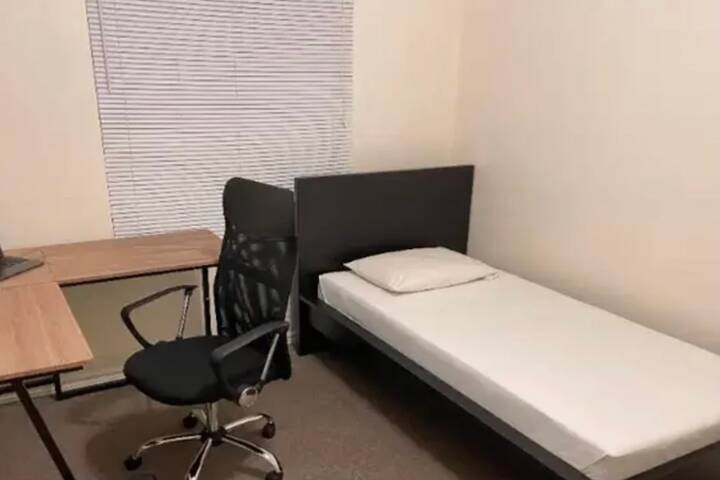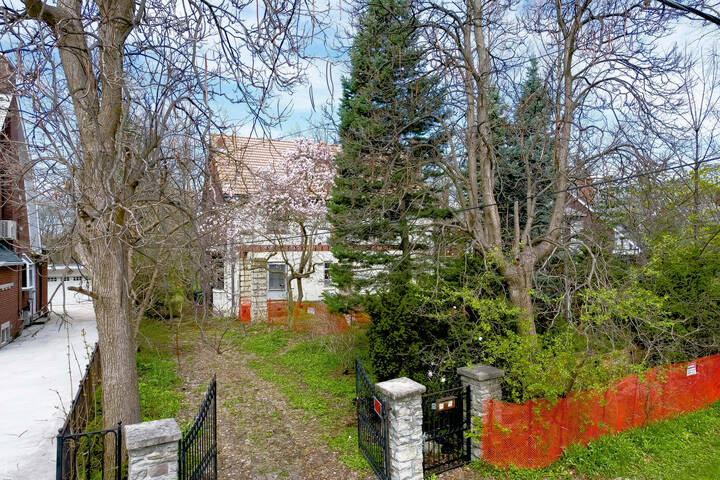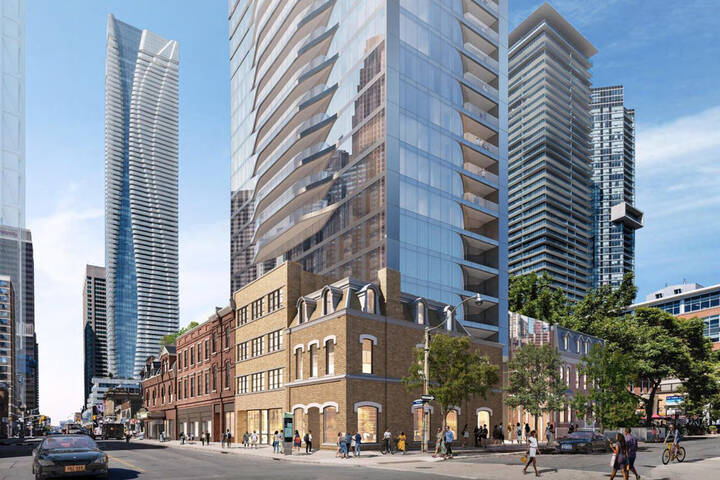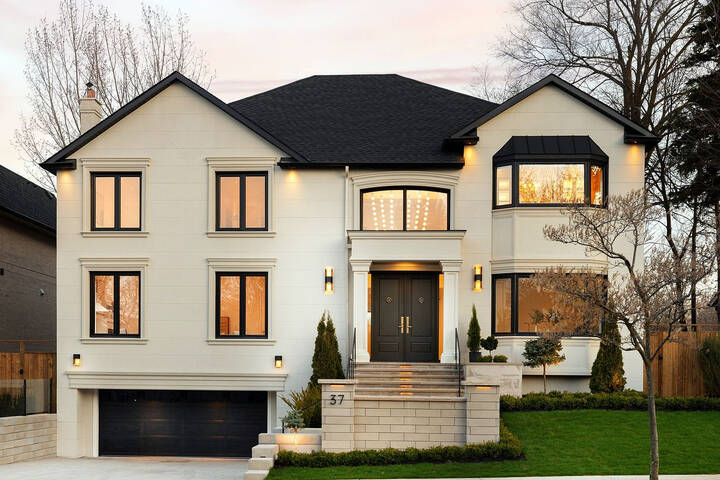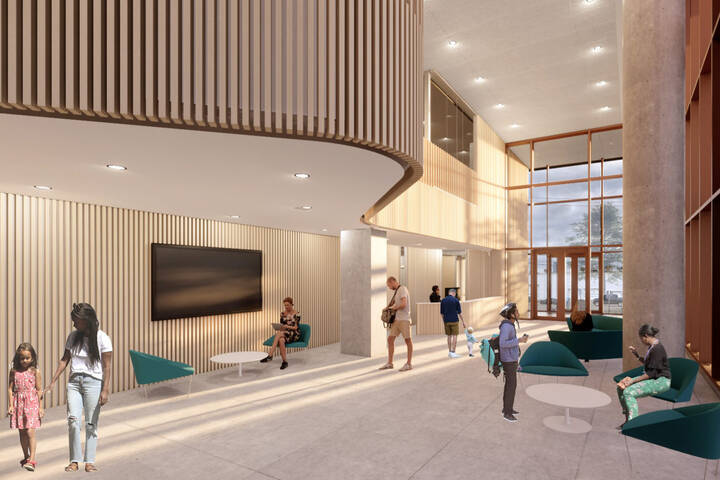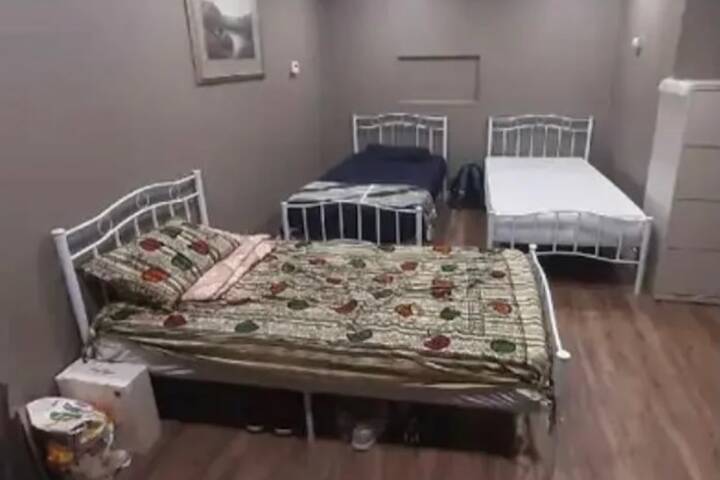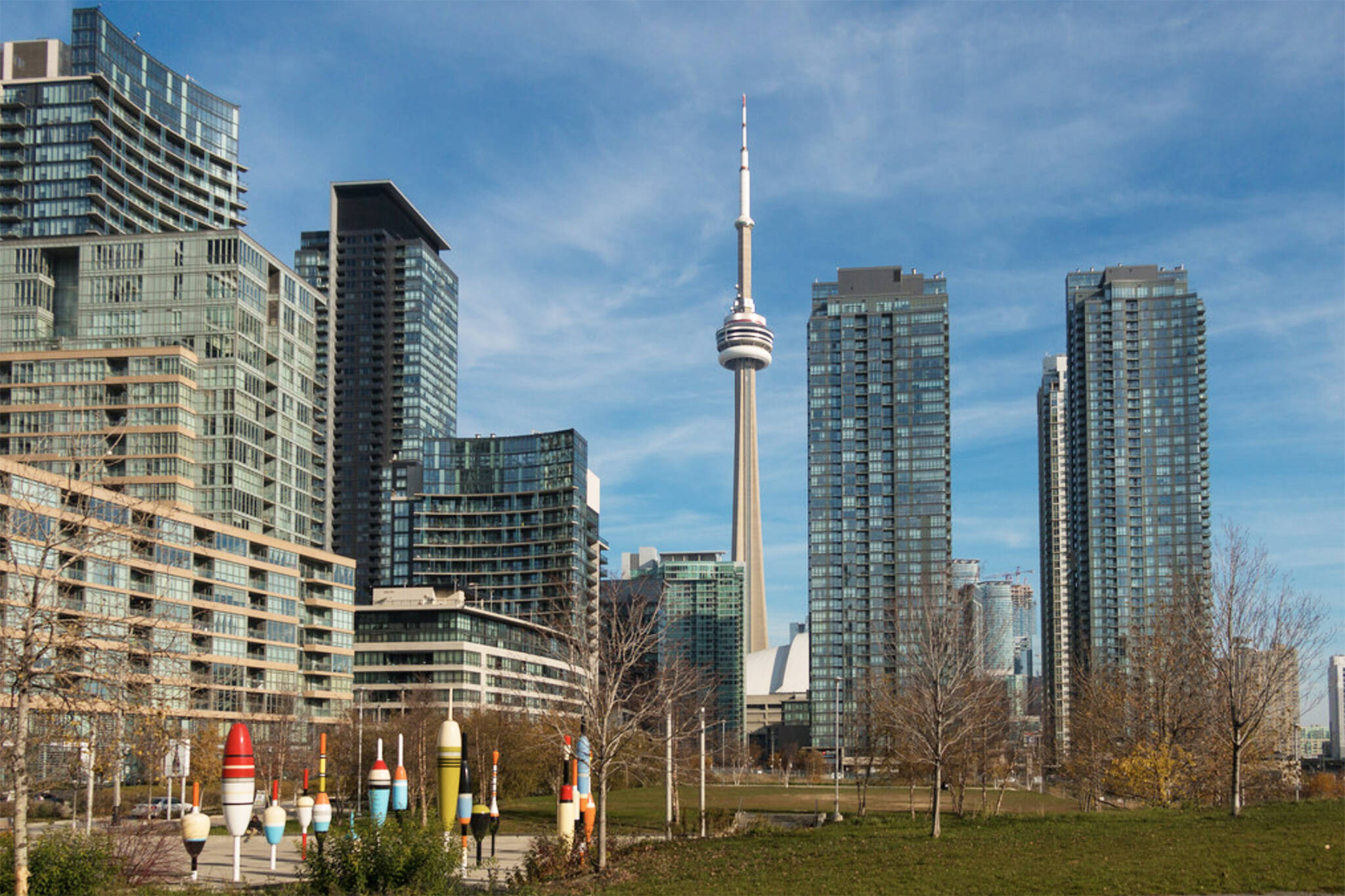
Here's the difference between a condo and an apartment in Toronto
If you're not in the market for buying or renting a single family home, a condo or apartment in Toronto is the option for you — and luckily, the city has tons of them, and they're going for cheaper than they have in a long time right now.
But what exactly are the key differences between the two very similar housing types?
Who takes care of issues with the property
Firstly, apartments buildings are rental only, while units in a condo building are owned, and then either occupied by the owner themselves or rented out by the owner to a tenant. As real estate giant RE/MAX points out, this means differences in how the place is maintained.
The owner of your particular unit — or an individual or company appointed by them as the landlord — will be the one to contact if anything needs fixing in a condo. They will then need to hire the necessary professionals to come for repairs, which may be at a cost to you.
In an apartment, however, there is one superintendent who is responsible for such matters for all units in the building, and they often have their own team of people to fix anything that comes up, usually at no additional cost to the tenant.
Condo sales in Toronto rise again thanks to people looking for bargain prices https://t.co/DuHXyW8l4A #Toronto #TorontoRealEstate #RealEstate
— blogTO (@blogTO) January 8, 2021
Costs and terms
Condos were the only housing type to see purchase prices actually drop year-over-year as former Airbnbs and other investment properties flooded the market, while the average rent price across the city fell pretty drastically over the course of 2020 for all rental units, condos and apartments included.
The cost for paying rent vs. paying monthly instalments of a mortgage each month can be comparable, but buying a condo will require a lot more capital up front for a down payment, and there are also monthly maintenance fees.
Purchasing a condo obviously also requires a whole lot more commitment than a lease; it can take decades to pay off a mortgage depending on your terms, though you can break them to sell, often with a penalty, if needed.
Buying a 2B 2b condo ends up with close to the same payment as renting a 1-2B 1b apartment.
— Briareus (@AuAsAkimbo) January 12, 2021
But the equity goes back into your bank account as you pay a mortgage vs rent money that flies out the window. So yeah I'm feeling like buying a quick $100k newly renovated condo
If you're simply renting a condo, however, rents will likely be comparable to those of apartments in the area, but terms may be a little more flexible than in an apartment building, which will have the same set terms for all units.
Individual condo owners/landlords may have differing and more lax rules around things like pets, painting and altering the space, the information they require in an application, how many months of rent they want up front (one or two), etc. They may also choose to include certain utilities in the rent, such as hydro or even internet, or separate them out as additional charges you have to have billed to yourself as the tenant.
Amenities
As the experts at RE/MAX note, condos generally tend to have much better amenities than apartments, with some of the newer buildings in Toronto including things as extravagant as theatre rooms, pet grooming facilities, nail salons, libraries, billiards, bowling alleys, pools, gyms, and more. But, the more amenities, the higher the maintenance fees for the owner and thus potentially higher rent for the tenant.
Condos also tend to have in-suite laundry, while apartments may have a communal laundry room — and that could be the extent of the building's offerings.
Latest Videos
Latest Videos
Join the conversation Load comments


